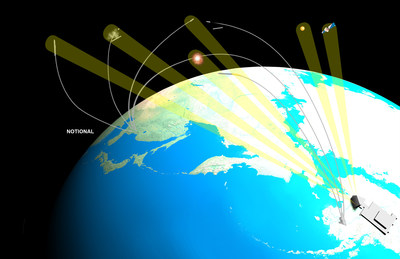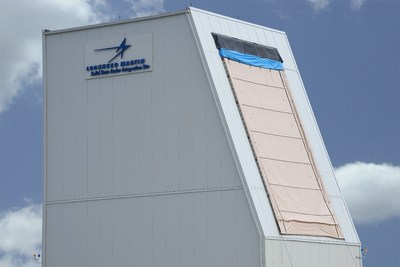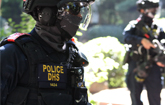
MOORESTOWN, N.J., Nov. 16, 2017 /PRNewswire/ -- Lockheed Martin (NYSE: LMT) completed a rigorous Critical Design Review (CDR) on Sept. 28 with the Missile Defense Agency (MDA) for the Long Range Discrimination Radar (LRDR), demonstrating compliance to all technical performance measures and requirements. The radar system will support a layered ballistic missile defense strategy to protect the U.S. homeland from ballistic missile attacks.


The MDA awarded the $784 million contract to Lockheed Martin in 2015 to develop, build and test LRDR, and the company is on track on an aggressive schedule to deliver the radar to Clear, Alaska in 2020. Teams from Lockheed Martin, MDA Sensors Directorate and the Command and Control, Battle Management, and Communications or C2BMC have worked interfaces closely to ensure seamless integration.
Successfully executing CDR validates that the LRDR system is ready to proceed into fabrication, demonstration, and test and that the hardware and software component have achieved Technology Readiness Level (TRL) 7 and Manufacturing Readiness Level 7.
With the completion of CDR, the program now begins the start of low rate manufacturing which began in October. In preparation for full rate manufacturing starting in mid-2018, Lockheed Martin will be utilizing production hardware in combination with prototype systems, tactical back-end processing equipment as well as tactical software to demonstrate system performance in an operational environment to achieve system TRL 7. Lockheed Martin will be performing a series of tests in the Solid State Radar Integration Site (SSRIS) including a closed loop satellite track test.
"We remain committed to support the MDA's Ballistic Missile Defense and Homeland Defense Missions," said Chandra Marshall, LRDR program director, Lockheed Martin. "I am extremely proud of the team for their dedication and commitment to the successful execution of the LRDR program. This team has achieved every milestone, including this CDR, on schedule since contract award in 2015."
Marshall continued, "I am extremely pleased with the progress the entire LRDR team has made in the two years since contract award. With the success of CDR, LRDR is on track for initial operating capability or IOC in 2020."
In addition to CDR, Lockheed Martin conducted a Facilities Design Review in October for the LRDR equipment shelter design. Lockheed Martin will run a full and open competition for the construction of the equipment shelter in Clear, Alaska and will begin construction of the shelter in the first half of 2019. The MDA team is preparing the site for Radar System Installation and checkout mobilization, constructing the Mission Control Facility and starting the foundation for the LRDR equipment shelter.
Similar to Lockheed Martin's Space Fence radar system, LRDR is a high-powered S-Band radar incorporating solid-state gallium nitride (GaN) components. LRDR adds the capability of discriminating threats at extreme distances using the inherent wideband capability of the hardware coupled with advanced software algorithms.
LRDR is a strategic national asset of the MDA's Ballistic Missile Defense System and will provide 24/7/365 acquisition, tracking and discrimination data to enable defense systems to lock on and engage ballistic missile threats, a capability that stems from Lockheed Martin's decades of experience in creating ballistic missile defense systems for the U.S. and allied governments.
Lockheed Martin is well positioned to provide low risk, scalable radar solutions that address critical homeland defense needs; providing a persistent capability to keep pace with evolving threats, delivering unmatched discrimination capability in the Pacific architecture, and increasing the defensive capability of Ground Based Interceptors.
Work on LRDR is primarily performed in New Jersey, Alaska, Alabama, Florida and New York.
As a proven world leader in systems integration and development of air and missile defense systems and technologies, Lockheed Martin delivers high-quality missile defense solutions that protect citizens, critical assets and deployed forces from current and future threats. The company's experience spans radar and signal processing, missile design and production, hit-to-kill capabilities, infrared seekers, command and control/battle management, and communications, precision pointing and tracking optics, as well as threat-representative targets for missile defense tests.
For more information, visit www.lockheedmartin.com/lrdr.
About Lockheed Martin
Headquartered in Bethesda, Maryland, Lockheed Martin is a global security and aerospace company that employs approximately 97,000 people worldwide and is principally engaged in the research, design, development, manufacture, integration and sustainment of advanced technology systems, products and services.
SOURCE Lockheed Martin






Share this article